Myanmar's Suu Kyi says ‘illegal immigrants spreading terrorism’
Myanmar’s leader Aung San Suu Kyi, who has come under global scrutiny for backing an ethnic cleansing campaign against the country’s unwanted Muslim population, has blamed “illegal immigration” for conflicts and “spread of terrorism” across the world.
Suu Kyi made the comments Monday in a speech in the capital Naypyitaw, which is hosting a biennial meeting of Asian foreign ministers and European Union officials.
“The history of numerous countries, including that of Myanmar, illustrated that conflict and instability cast a long and lasting shadow in a country’s development,” Suu Kyi said, without peace, there can’t be any "durable progress and prosperity."
She said in the context of the meeting, “there is a vital need for new and stronger partnerships to address far-reaching challenges.”
Amongst the challenges she named were “the impact of regional and international conflicts on domestic security and the threat of terrorism and violent extremism.”

Suu Kyi's remarks echoed the views of Myanmar’s government and military, which consider the country’s Rohingya Muslim community as illegal immigrants and accuse them of carrying out terrorist attacks in the state of Rakhine.
Myanmar's government has defied calls by the UN and the international community to grant citizenship to stateless Rohingya Muslims, whose roots in the country go back centuries.
The military has used such terrorism allegations to unleash a brutal government-backed military crackdown targeting Muslims in Rakhine.
Some 620,000 Rohingya Muslims have fled rape, murder and arson attacks by Buddhist extremists and military forces in Rakhine since the onset of the campaign in late August.
The UN and leading human rights groups have described the crackdown in Rakhine as an ethnic cleansing campaign aimed at getting rid of the minority group.
ASEM pressures Myanmar
The two-day gathering of Asia-Europe Meeting (ASEM) kicked off in Myanmar on Monday with representatives from 51 Asian and European countries plus the European Union and the Association of Southeast Asian Nations.
The meeting is expected to focus on how Suu Kyi will respond to their demands, which will likely include an independent investigation into the ongoing violence and abuses in Rakhine.
The European Union’s foreign policy chief, Federica Mogherini, held a meeting with Suu Kyi, about which she told reporters, “I found it extremely encouraging.”

“I am very much encouraged by the possibility – that I believe is real and concrete – of Myanmar and Bangladesh” reaching an agreement for the repatriation of Rohingya refugees, she said.
Myanmar and Bangladesh are yet to strike a deal to repatriate the Rohingya refugees.
Mogherini called on “both Bangladesh and Myanmar to work bilaterally [on] this issue with the support of the EU and with the international community.”
She visited a refugee camp at Cox’s Bazar in the southeast of Bangladesh, accompanied by some other officials, including German Foreign Minister Sigmar Gabriel and Japanese Foreign Minister Taro Kono.

The top EU diplomat said the Rohingya Muslims living in squalid camps were “carrying with them terrible stories.”
“As a mother, seeing so many very young children taking care of even younger children is what strikes me the most,” she added.
Israeli forces kill 7 more Palestinians in West Bank
Israel’s Netanyahu dismisses military affairs minister Gallant
Hezbollah attacks turn Israel’s Haifa into a ghost town
Iran’s FM meets Pakistani PM, discusses bilateral ties, Israeli atrocities
Iran ramps up gasoline output amid rising demand
UK foreign secretary under pressure over denial of genocide in Gaza
VIDEO | Press TV's news headlines
Hezbollah bombards explosives factory in occupied territories


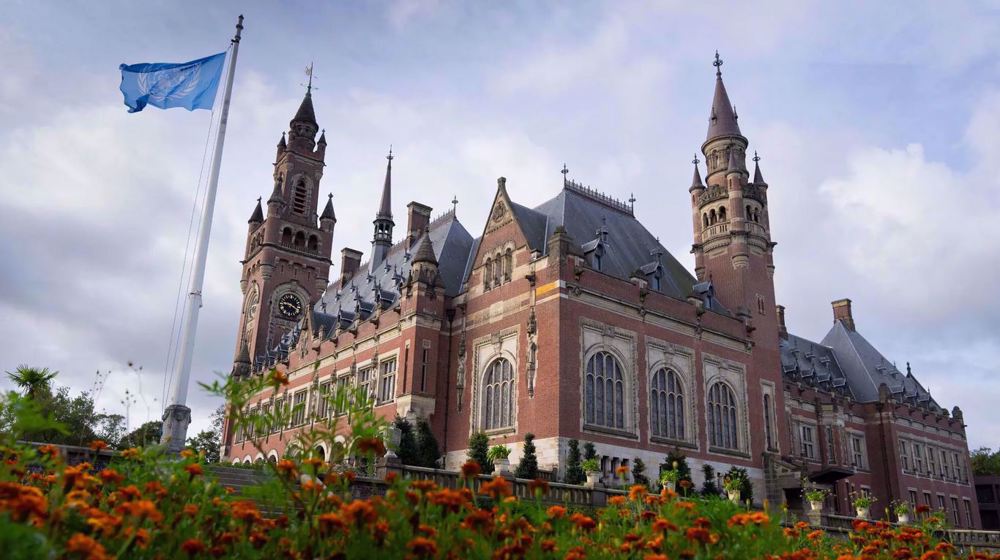

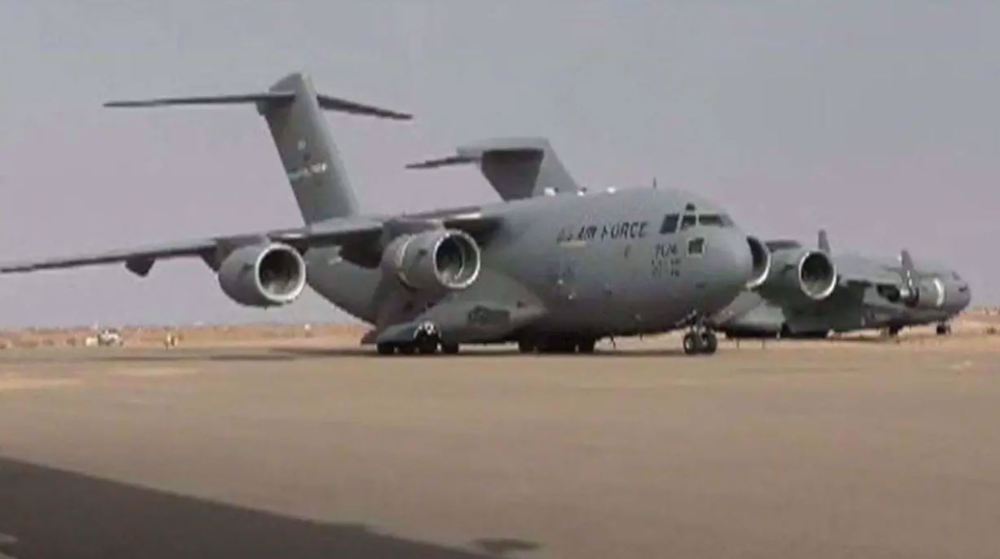



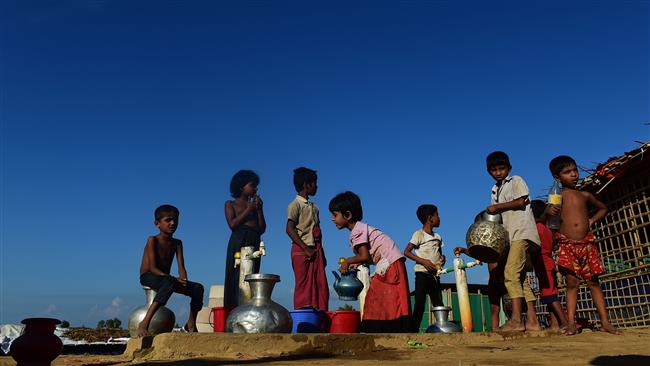
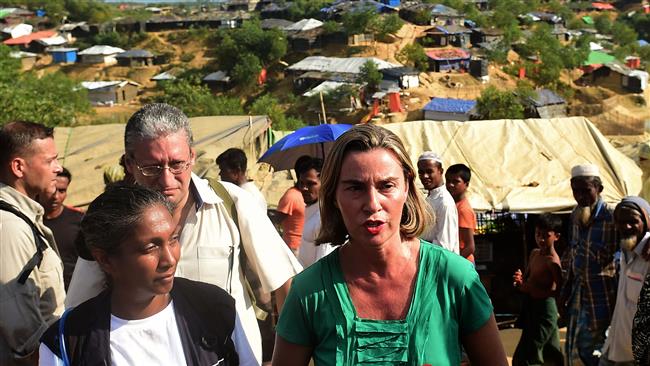
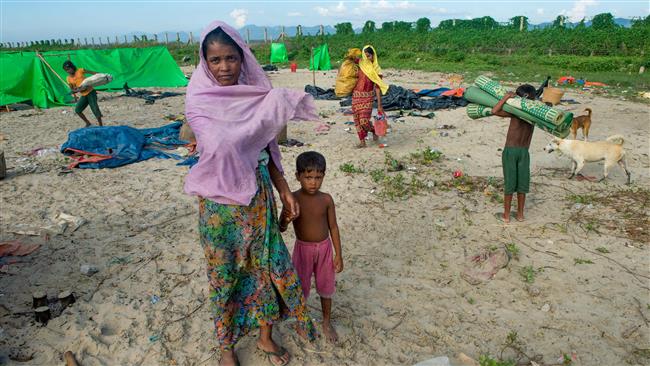

 This makes it easy to access the Press TV website
This makes it easy to access the Press TV website